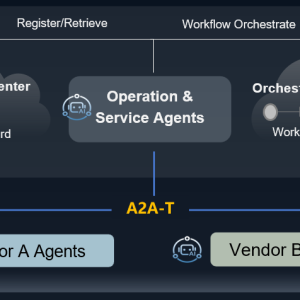
Continuing to advocate for and invest in well-designed collection systems to help reduce beverage packaging waste
HONG KONG SAR – Media OutReach Newswire – 15 October 2025 – Coca-Cola in Hong Kong, represented by The Coca-Cola Company and its bottling partner Swire Coca-Cola in the city, announced today a significant leap forward in its commitment to helping Hong Kong reduce beverage packaging waste with a more well-designed approach: becoming the first in the metropolis to recycle locally collected plastic bottles into new ones leveraging the advanced recycling facility supported by the Coca-Cola System in Hong Kong.

“Every locally produced 500ml Coca-Cola® Trademark beverage or bonaqua® water (1.5L or below) you enjoy, there’s a good chance the bottle is now made from locally recycled plastic,” shared Karlijn in t Veld, Vice President of Operations for Hong Kong, Taiwan, Macau and Mongolia at The Coca-Cola Company. “This isn’t just about refreshing the world; it’s about making a tangible difference for a better Hong Kong, one bottle at a time.”


This holistic local approach is vital for Hong Kong, which faces unique challenges in managing beverage packaging waste. It is made possible by the significant investment by Swire Coca-Cola, one of the world’s largest Coca-Cola bottlers, in New Life Plastics Limited (NLP). As Hong Kong’s first food-grade-ready plastic bottle recycling facility, NLP is designed to process up to 2 million plastic beverage bottles daily. However, it currently processes less than 800,000 daily, highlighting the critical need for increased collection efforts from the community.
Understanding Local Recycling Landscape
A recent Coca-Cola Hong Kong survey* of 1,125 local consumers sheds light on the public’s recycling habits and the challenges that Hong Kong faces in its recycling efforts, thus underscoring that while Hong Kongers are willing to recycle – with 67.29% said they ‘are already trying to recycle as much as possible’ – they need more accessible infrastructure.


The survey revealed that the top challenges for recycling are “insufficient or inconvenient recycling infrastructure” (77.16%). Many also expressed concern that “recyclables are not properly processed” (24.09%).
Coca-Cola’s Continued Commitment in Hong Kong
Consumer preference for sustainable products is clear, with 63.56% prioritizing environmentally friendly packaging and 80.98% indicating that manufacturers’ sustainability efforts increase consumers’ purchase intent.
Over the years, Coca-Cola in Hong Kong has continued to increase the use of recycled material in their primary packaging, while also achieving many other packaging innovation milestones, including but not limited to:
- Reducing Plastic:
- Each bonaqua® 500ml bottle weighs just 11.8g, 52.8% lighter than typical PET bottles**.
- Rethinking Packaging:
- Various Coca-Cola brands have started using rPET in bottle production since 2019. In 2020 and 2024 respectively, bonaqua® water (1.5L or below) and Coca-Cola® Trademark beverage (500ml) adopted 100% rPET to produce their bottles, excluding caps and labels.
- bonaqua®’s label-less bottles not only reduce packaging waste, but also help improve their recyclability through game-changing packaging design.
- Sprite® and Schweppes® have also transitioned to clear bottles to help enhance bottle recyclability.
- To encourage packaging reuse, Returnable Glass Bottles for key brands like Coca-Cola®, Coca-Cola® No Sugar, Sprite®, Fanta®, Schweppes® and bonaqua® have been reintroduced in 2022, supported by a self-managed bottle return mechanism.
“Through rethinking our packaging design, we’re using the power of our brands, leading with Coca‑Cola® and bonaqua®, to educate and inspire our consumers to contribute to collection and recycling efforts,” Iris Lee, General Manager, Hong Kong and Macau, at The Coca-Cola Company, commented. “Our packaging is our biggest, most visible billboard. Aside from that, we will continue to recycle locally collected plastic bottles to create new ones leveraging well-designed facilities. This localized approach is especially significant when you consider Hong Kong’s unique journey in tackling beverage packaging waste. We’re honored to play a role in providing a local recycling solution for Hong Kong,” Iris continued.
“We believe every package has value and life beyond its initial use and that it should be collected and recycled into a new package. We continue to engage proactively to help drive collective action, working with all key stakeholders to invest in recycling innovation, facilities, and initiatives. Coca-Cola in Hong Kong is a strong enabler of a local circular economy for plastic,” said Richard Gould, Director and General Manager of Swire Coca-Cola HK, “With the significant investment Swire Coca-Cola has been making in New Life Plastics, we help ‘close the loop’ so we are able to create new life for plastic bottles through recycling.”
Partnering to Collect
Over the years, in partnership with industry peers and other organizations, including Drink Without Waste and The Green Future Foundation Association, Coca-Cola in Hong Kong has been supporting consumer education and community collection programs to help enable beverage packaging recycling, including our bulk collection efforts in Tin Shui Wai and our other neighborhood education and collection initiatives in other participating housing estates around the city.
“At Swire Coca-Cola HK, we continue to leverage our expertise and develop new manufacturing technologies to offer consumers even more environmentally friendly beverage packaging choices. We weave sustainability into the fabric of our endeavors, from design, sourcing, production to product delivery,” Richard continued: “We are proud that we are the first in Hong Kong, by leveraging our own local recycling and production facilities, in using locally collected plastic bottles to create new ones. We invite our consumers to separate and return used bottles, knowing their returned bottles can be and will be given a new life, again and again.”
To learn more about Coca-Cola® Trademark beverages or bonaqua® mineralized water in 100% rPET bottles (excluding caps and labels), customers can contact the Swire Coca-Cola HK customer service hotline at +852 2210 3888, or purchase the products via the current distribution channels and Swire Coca-Cola HK eShop (www.swirecocacolahk.com).
*Conducted in early September 2025 via an online questionnaire with 1,125 valid responses collected from COKE+ members.
**bonaqua®’s 500ml bottle weighs 11.8g, which is lighter than the typical PET bottle found in the market, which can weigh 18-32g. (Source: New Life Plastics Ltd – https://www.nlplastics.com.hk/pet-hdpe/)
Hashtag: #CocaCola
The issuer is solely responsible for the content of this announcement.
About The Coca-Cola Company
The Coca-Cola Company is a total beverage company, offering over 500 brands in more than 200 countries. In Hong Kong, the company has a portfolio covering sparkling, sweetened and unsweetened tea, juice, sports drink, water, enhanced hydration beverages, etc. We have 12 brands offering 70 different variants such as “Coca-Cola”, “Coca-Cola No Sugar”, “Coke Plus”, “Sprite”, “Fanta”, “Schweppes”, “Bonaqua” Mineralized Water, “Authentic Tea House”, “Minute Maid”, “Minute Maid Qoo”, “Yeung Gwong”, “Aquarius”, “Healthworks”, “Kochakaden” CRAFTEA” and “OOHA”. We are constantly transforming our portfolio, from reducing sugar in our drinks to bringing innovative new products to market. Learn more about us on Coca-Cola’s Facebook and Instagram.





